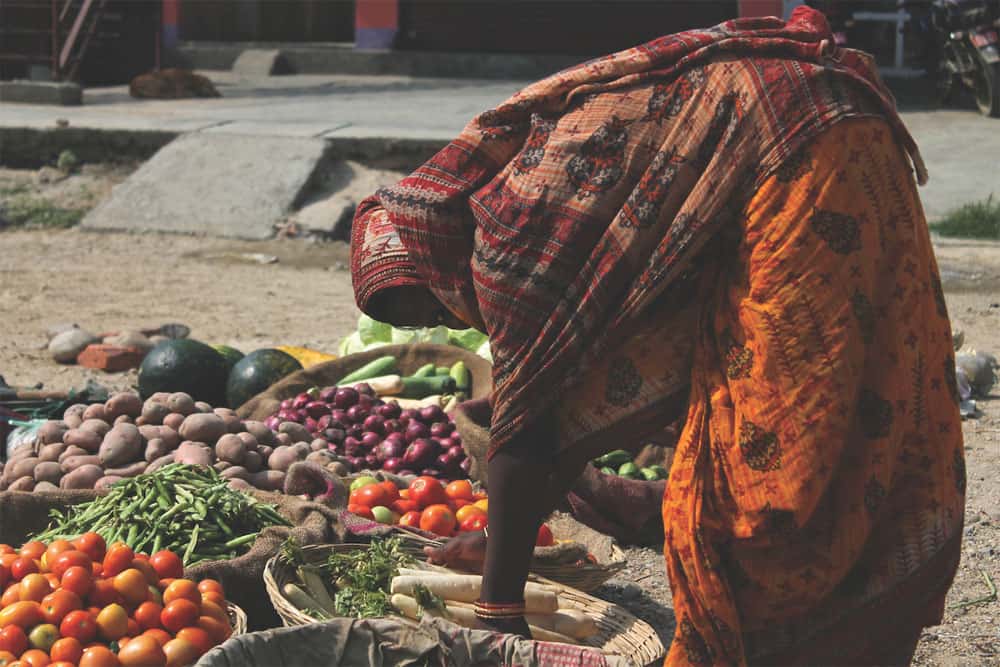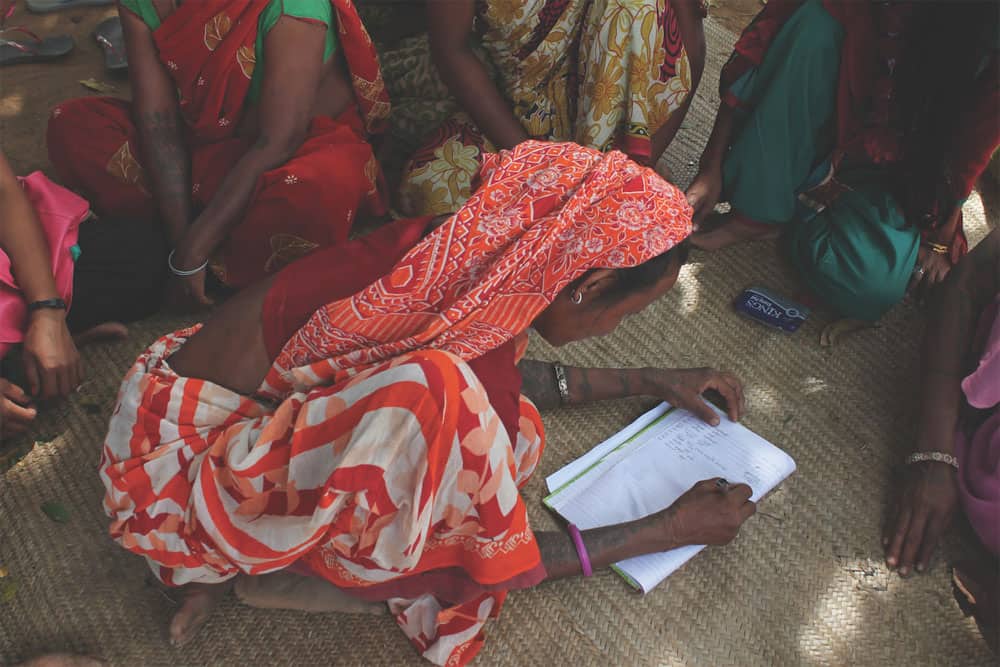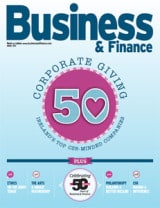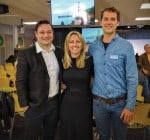Kalam Anshari inspires the self-help group in Chebkat Aurahi village, south eastern Nepal.
Debbie Thomas, director of the Nepal Leprosy Trust Ireland, explains how the organisation is helping sufferers of the disease overcome not just the physical trauma, but the social barriers.
Real development means self-development. It’s a cornerstone of aid, almost too obvious to mention. The best help allows people to help themselves, and a way to do that is by assisting those in need in establishing a sustainable business.
But business involves transaction − buying, selling, negotiating and collaborating. What happens if no one will buy from you, no one will sell to you, no one will touch or even talk to you?
That’s the challenge facing some of the poorest, most despised people on earth − those affected by leprosy in Nepal.
In a country where the average wage is less than €0.75 a day, leprosy can lead to destitution, starvation and suicide. The cause of such desperation isn’t the physical disease but the associated stigma.

An open air green grocer selling vegetables at the market
Double disaster
In a ground-breaking approach, an Irish NGO is now tackling the two ‘diseases’ of leprosy in Nepal − physical and social − and turning lives around. Nepal Leprosy Trust Ireland supports the Village Alive Programme in villages of the south eastern Terai region.
The programme uplifts both individuals and their communities. The most rejected villagers become the most respected, and the poorest prosper, by setting up small businesses and bringing lasting improvements to their environment.
Simply giving money to start a business wouldn’t work in Nepal, where leprosy is traditionally viewed as a divine curse; a punishment for misdeeds in a former life. The curse extends beyond those affected to those around them. This presents a huge challenge to anyone trying to set up a business.
Leprosy can be cured by multi-drug therapy in a matter of months. There may, however, be permanent physical damage such as blindness or claw hands, which can lead to the lifelong torment of persecution and rejection. People may be thrown out of their homes, forced to beg and left to die alone. People like Kali Maya who, when diagnosed with leprosy, was banished from her village to live in the jungle. Or Indra Kala, forced to stay in a hut at the back of her family home for 12 years and allowed out only at night with no human contact apart from her mother. Or Bal Kumari, an old, blind lady forced to live in a hole in a riverbank and eat the food left at the entrance daily by her family.
In the face of such persecution, people affected by leprosy can never prosper, in business or life, until attitudes towards them change. And this is exactly what is happening through the Village Alive Programme. Those once dismissed as useless, even dangerous, are transforming lives − both their own and those of their communities.
From rejected to respected
The programme works from the inside out to turn attitudes upside down. A villager diagnosed with leprosy first undergoes treatment at Nepal Leprosy Trust Ireland’s hospital at Lalgadh in the Terai. Once cured, the villager returns home and joins a self-help group. This is a gathering of 10 to 15 members, all of whom have been affected by leprosy or other stigmatising conditions such as poverty and disability. They meet regularly to share experiences, address challenges and encourage each other. In this way, barriers are broken down. Men and women, young and old, as well as Muslims, Christians and Hindus all sit together and share their struggles. As self-esteem and confidence grow, the group works together to bring benefits to the village.
Members may dig a well to supply clean water, set up a school or build a health clinic. The benefits to the village are enormous: increased literacy, better family planning, improved antenatal and newborn care, more vaccinations, clean drinking water and lower incidence of diarrhoea, among many others. The success of Nepal Leprosy Trust Ireland’s work has also won the support of the Nepali Government, which has traditionally sidelined the treatment of leprosy and the fight against stigma.

Signing up for success in the Village Alive Programme, Harsahi village, south eastern Nepal
Through such improvements, self-help group members gain huge respect from villagers who formerly cast them out. Relationships flourish and group members can then set up small businesses through microcredit schemes to support themselves and their families. With seed capital from a pool of savings, a borrower may buy a cow and sell milk, grow and sell vegetables, run a shop, set up a sewing business, buy and drive a rickshaw, and train in other skills. Once their business is viable, they pay back the loan and another group member can borrow. If the group is too poor for the initial savings, Nepal Leprosy Trust Ireland may give the seed capital as a gift. There is a remarkable self-regulation and accountability in the group and failure to repay a loan is very rare.
The Village Alive Programme is overturning centuries of stigma. As patients are cured, not only medically through drugs but also socially through support and friendship, they grow in self-esteem. This overflows into community spirit and a desire to uplift their former persecutors. And as stigma decreases, so too does the incidence of leprosy, thanks to better immunity and living standards. The Village Alive Programme is quietly revolutionising rural Nepal, winning the war against leprosy on both fronts, physical and social.
Nepal Leprosy Trust Ireland, funded by Irish Aid and The Leprosy Mission Canada, is supporting the Village Alive Programme in two very poor Dalit (untouchable) villages. The three-year programme costs €20,000 per village per year. Around 20 villages are currently requesting the programme.
Case studies
Fruit …
Income generation and adult literacy are among the fruits of the self-help group at Bengadawar village near Lalgadh in south eastern Nepal. After only a year the 12 members are supporting each other and the wider community to fight the stigma of leprosy. The group has been offered a school room for weekly meetings, literacy classes and lessons for children who can’t afford formal education. Shankar Pariyar, who was paralysed in a recent accident, can no longer earn money by selling locally produced food. The self-help group has raised funds to support his seven family members and is supporting his wife through a vocational training programme.
… and Veg
Bimala Ghising has set up a vegetable shop from which she earns up to 3000 rupees (approximately €32) a month. Her two sons bring vegetables from the market and help keep accounts. She is gaining confidence in her role as treasurer of the finance committee.
 This article was originally published in the Business & Finance Corporate Giving 50 2014. A special report on some of Ireland’s top CSR-minded companies.
This article was originally published in the Business & Finance Corporate Giving 50 2014. A special report on some of Ireland’s top CSR-minded companies.





